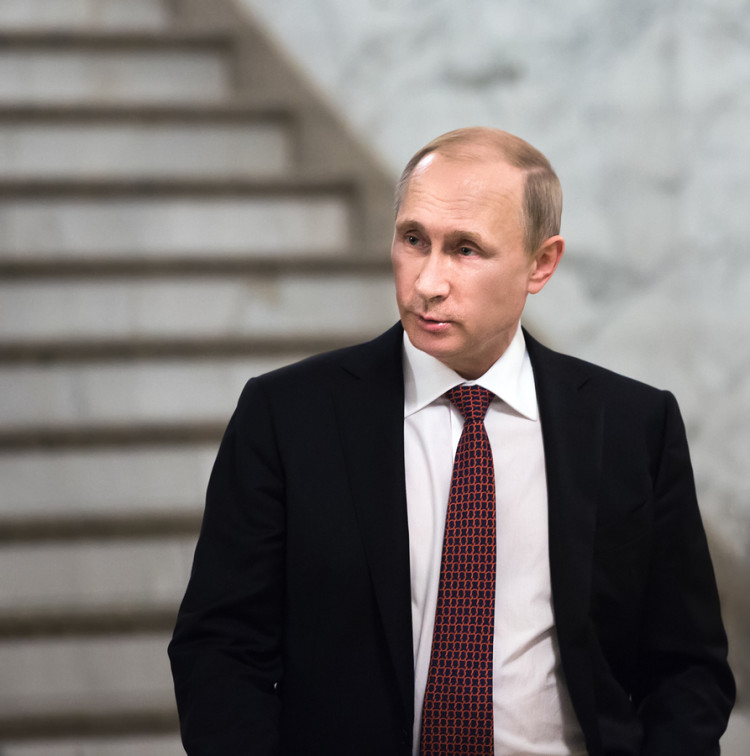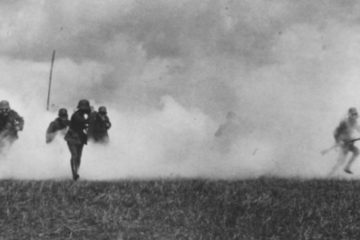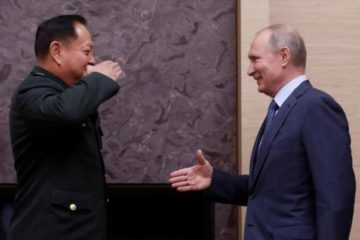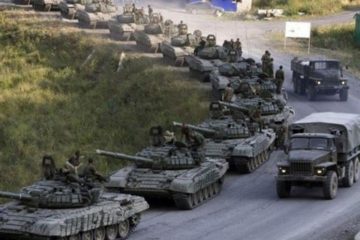Putin’s Intervention in Syria Demands a U.S. Response: Editorial

©2015 Bloomberg View
NWFRS26JTSEC
(Bloomberg View) — Say this much for Russian President Vladimir Putin: He knows the U.S. and the world will take him seriously only if they have no choice. This is the logic behind his military intervention in Syria, and it demands a U.S. response.
QuickTakeSyria’s Civil War
Yet U.S. President Barack Obama seems to be at a loss, warning Putin that he will make the war worse and that he’ll be stuck in a “quagmire.” The first is definitely true; the second may be eventually. In the meantime, too many lives and U.S. interests are at stake for Obama to stand aside and hope Putin will dig himself an Afghanistan-size hole in Syria.
What, then, is the alternative? The administration’s main goal should be as simple as it is difficult: help the refugees, and by doing so help create the conditions for a political settlement.
That means creating havens for refugees and other noncombatants in rebel-held areas that have been made safe from Assad and Islamic State alike. In the south, along the Jordanian border, there is an area already dominated by a coalition of more than 50 militia groups that are working with the U.S. and Jordan. In the north, Turkey has proposed a similar zone along its border, currently controlled in large part by Islamic State.
At the same time, the U.S. should demand Putin use his influence with Assad to ground Syria’s helicopter fleet, which has dropped thousands of barrel bombs on civilians in rebel-held areas. And if Putin fails or refuses, which seems likely, the U.S. should be prepared to do the job itself. Russia also needs to be made to understand that if it targets U.S.-backed rebels or safe zones, the U.S. will expand its air war to include Assad’s forces.
All this will require a greater U.S. presence, of course, but it needn’t be in the form of combat troops — which, as Obama has made clear, aren’t forthcoming in any event. Instead, the focus should be on strengthening NATO’s presence in the region, especially along the Turkish-Syrian border, which would not only protect the safe havens but also interfere with Putin’s more dangerous mischief.
One manifestation of that mischief is now unfolding in the northern city of Aleppo, where rebels who hold much of the city are coming under assault from Russian air power, as well as Syrian, Iranian and Hezbollah troops from one side, and Islamic State from the other. Without support, Aleppo will probably fall.
More than a million refugees would then flee the region, by some estimates. Those remaining in the city, which is mostly Sunni, could not be expected to meekly accept the reimposition of Assad’s rule and would become further radicalized. Inevitably, some number of them would turn to Islamic State. None of this would bring the war’s end any closer, or serve U.S. interests in the Middle East.
Russia’s involvement in Syria makes an already brutal and convoluted situation even more so. That said, if the U.S. fails to respond, the conflict in Syria only stands to get worse. As a strategy, neglect is no longer tenable.
www.bloomberg.com
–Editors: Marc Champion, Michael Newman.
To contact the senior editor responsible for Bloomberg View’s editorials: David Shipley at davidshipley@bloomberg.net.
For more columns from Bloomberg View, visit http://www.bloomberg.com/view







No Comment